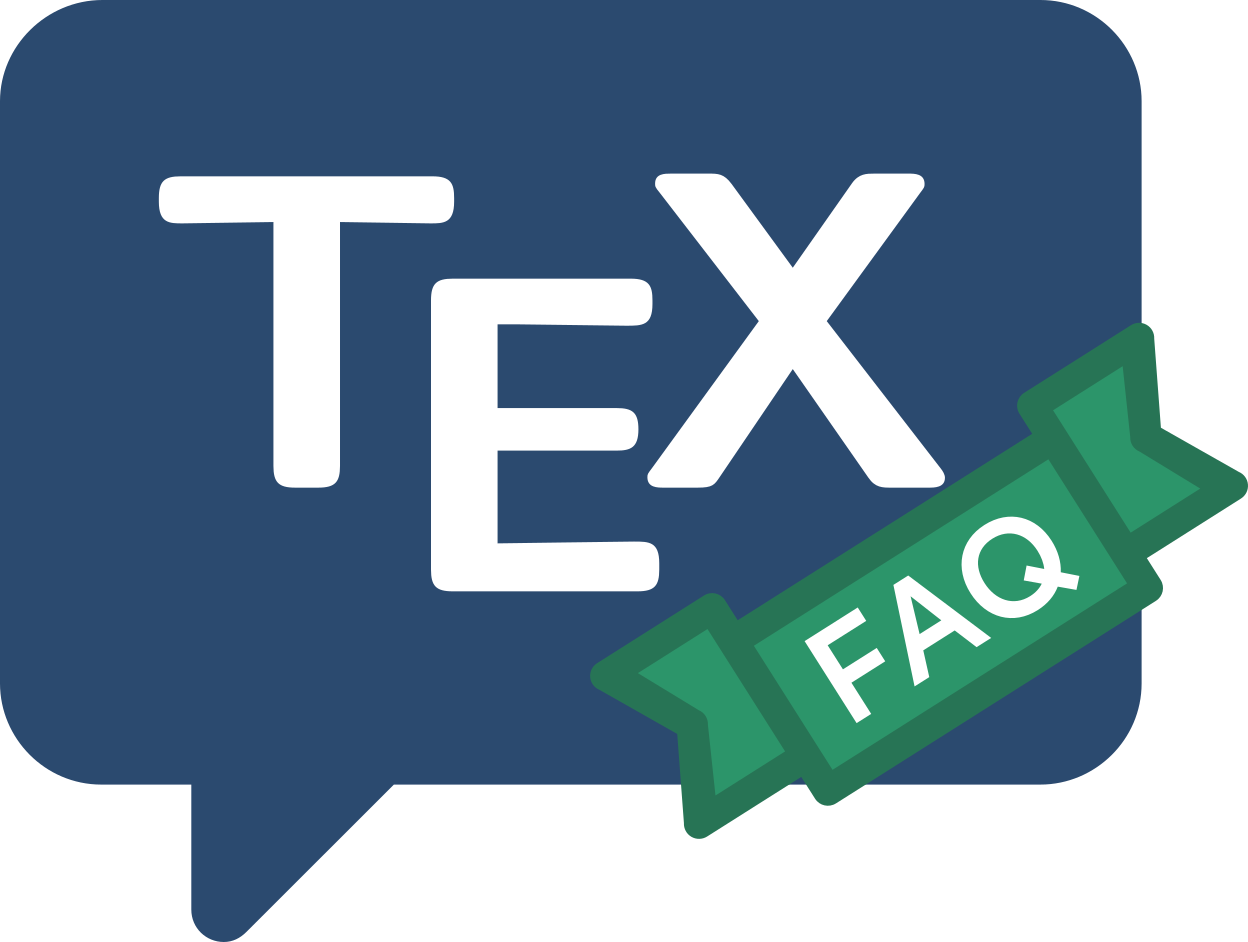
Frequently Asked Question List for TeX
Formatting
Better script fonts for maths
The font selected by \mathcal is the only script font “built
in”. However, there are other useful calligraphic fonts included with
modern TeX distributions.
-
Euler The
eucalpackage (part of most sensible TeX distributions; the fonts are part of the AMS font set) gives a slightly curlier font than the default. The package changes the font that is selected by\mathcal.Type 1 versions of the fonts are available in the AMS fonts distribution.
- mathabx The
mathabxbundle provides calligraphic letters (in both upper and lower case); the fonts were developed in MetaFont, but a version in Adobe Type 1 format is available. The bundle’s documentation offers a series of comparisons of its calligraphic set with Computer Modern’s (both regular mathematical and calligraphic letters); the difference are not large. - mnsymbol The
mnsymbolbundle provides (among many other symbols) a set of calligraphic letters, though (again) they’re rather similar to the default Computer Modern set. - RSFS The
mathrsfspackage uses a really fancy script font (the name stands for “Ralph Smith’s Formal Script”) which is already part of most modern TeX distributions (Type 1 versions of the font are also provided, courtesy of Taco Hoekwater). The package creates a new command\mathscr. - RSFSO The bundle
rsfsoprovides a less dramatically oblique version of the RSFS fonts; the result proves quite pleasing — similar to the effect of the the (commercial) script font in the Adobe Mathematical Pi collection. - Zapf Chancery is the standard PostScript calligraphic font. There
is no package but you can easily make it available by means of the
command
\DeclareMathAlphabet{\mathscr}{OT1}{pzc}{m}{it}in your preamble. You may find the font rather too big; if so, you can use a scaled version of it like this:
\DeclareFontFamily{OT1}{pzc}{} \DeclareFontShape{OT1}{pzc}{m}{it}{<-> s * [0.900] pzcmi7t}{} \DeclareMathAlphabet{\mathscr}{OT1}{pzc}{m}{it}Adobe Zapf Chancery (which the above examples use) is distributed in any but the most basic PostScript printers. A substantially identical font (to the extent that the same metrics may be used) is available from URW, called URW Chancery L: it is distributed as part of the “URW base35” bundle; the
urwchancalpackage (which includes virtual fonts to tweak appearance) provides for its use as a calligraphic font.The TeX Gyre font family also includes a Chancery replacement,
Chorus; use it withtgchorus(and ignore the complaints about needing to change font shape).
Examples of the available styles are linked from the packages’ catalogue entries.
FAQ ID: Q-scriptfonts